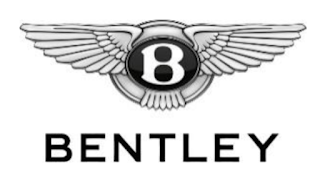Retail Scanner
Battle of the Bentleys
April 2020
Luxury carmaker defeated by family-run Bentley Clothing. In November 2019 a small family run clothing company won a trade mark infringement action in the High Court against world renowned luxury car manufacturer, Bentley Motors (Case Bentley 1962 Limited & Brandlogic Limited v Bentley Motors Limited [2019] EWHC 2925 (Ch)).
Background
Bentley 1962 Limited and Brandlogic (collectively known as ‘Bentley Clothing’) sold clothing under the Bentley brand since as early as 1962. Bentley Clothing owns a number of United Kingdom trade mark registrations for the BENTLEY mark, the earliest dating from 1982.
In 1987, Bentley Motors began selling a range of clothing, featuring their stylised ‘B-in-wings logo’, but not specifically under the ‘Bentley’ mark. In 1998, Bentley Clothing made itself known to Bentley Motors, offering a licence to the car maker. However, the discussions never led to any form of agreement. From 2000, Bentley Motors began to expand its clothing range and to use the ‘Bentley’ mark on the clothes but note this was not purely in isolation. The mark as used, was part of a combination of the word ‘Bentley’ and their ‘B-in-wings logo’.

Above: Bentley Motor’s combination mark of word and ‘Bentley’ and ‘B-in-wings logo’.
Fast forward to 2015 and things started to heat up between the parties. Various trade mark registry proceedings were launched over the Bentley mark, specifically in relation to ‘clothing and headgear’. Notably, Bentley Motors failed to cancel all of Bentley Clothing’s trade mark registrations. As a result, Bentley Clothing started trade mark infringement proceedings, in relation to the use of the above combination mark on the clothing and headgear goods.
Issues for the Court’s consideration
One issue which was considered by the court was whether Bentley Motor’s combination sign was in fact one sign or two. If the court considered the mark to be two separate signs, then the requirements for infringement under Section 10(1) of the UK Trade Marks Act 1994 would be established (identical signs for identical goods). This is important as it means there is no need to establish a likelihood of confusion for consumers, thus generally speaking an easier case to argue.
If the combination mark was considered one sign, then infringement proceedings would move forward under Section 10(2), use of a similar sign for identical goods where a likelihood of confusion exists.
After reviewing the evidence, the Judge found that the marks had been used separately for a long period of time and would have been considered as two separate signs by consumers. Therefore, infringement under Section 10(1) was established.
The likelihood of confusion under S10(2) was satisfied as through the eyes of an average consumer, the BENTLEY element was the dominant element of the combination mark and this was how consumers would refer to the clothing goods by Bentley Motors.
Defences raised by Bentley Motors and the outcome
The first defence raised by Bentley Motors falls under the transitional provisions of the 1994 Act, whereby the 1994 Act set out provisions which apply to the use of signs that were lawful under the preceding Trade Marks Act 1938, but were no longer lawful under the 1994 Act.
Prior to the 1994 Act, Bentley Motors sold jackets, silk ties, caps and scarves under the heading: ‘The Bentley Selection’. The only trade mark that Bentley Clothing had registered by 1994 covered “knitted clothing, shirts and waistcoats” and not the types of clothing sold by Bentley Motors prior to 1994. This defence was successful for Bentley Motors and it was found that they had a continuing right to sell the jackets, silk ties, caps and scarves.
The second defence raised was that of Honest Concurrent Use where it is possible for two separate entities to co-exist, such that the inevitable confusion that arises has to be tolerated. As such, a trade mark could indicate the goods or services of either of the entities without impairing the other’s use, but the defendant must not take steps which exacerbate the level of confusion beyond that which is inevitable. Due to the fact that the parties had discussions in 1998 regarding a possible licence deal, Bentley Motor’s behaviour – after these discussions – was taken to be “an intent to clear away Bentley Clothing’s right to protect the BENTLEY mark” and thus their behaviour was no longer honest and not able to rely on this defence.
Summary
So, Bentley Motors was found liable for trade mark infringement of the BENTLEY marks owned by Bentley Clothing for goods other than jackets, silk ties, caps and scarves and was ordered to pay costs of £400,000 to Bentley Clothing. Bentley Motors has since applied to the Court of Appeal to appeal the decision, so the matter may not be quite over yet.
Take away point
The key point to take from this case is always to register your trade marks early and don’t be afraid to enforce them against a third party. Even if you are an established brand it is important to consider what earlier rights are in existence when moving into a new product sector as it can raise challenges for expansion.































